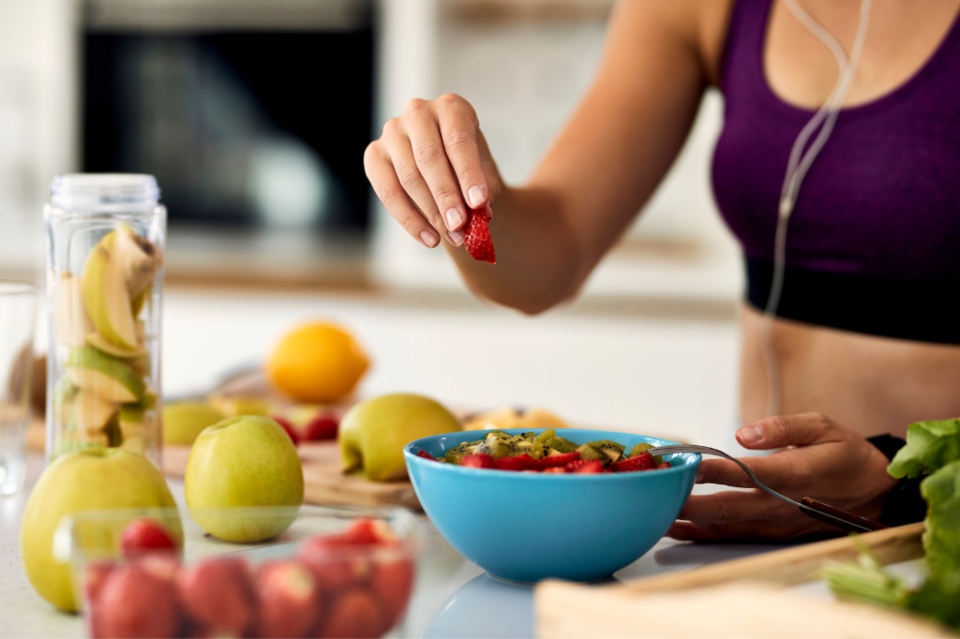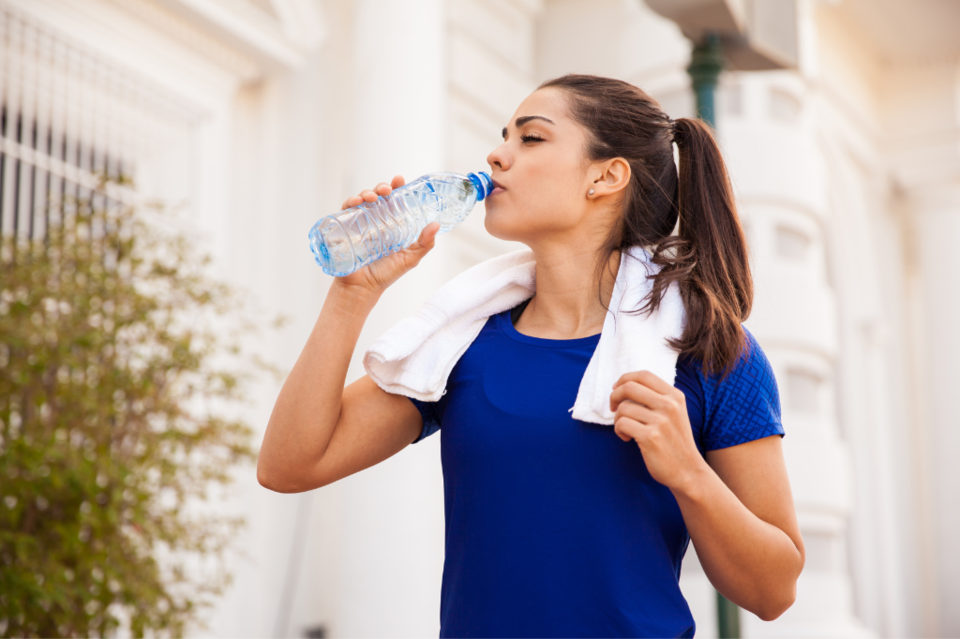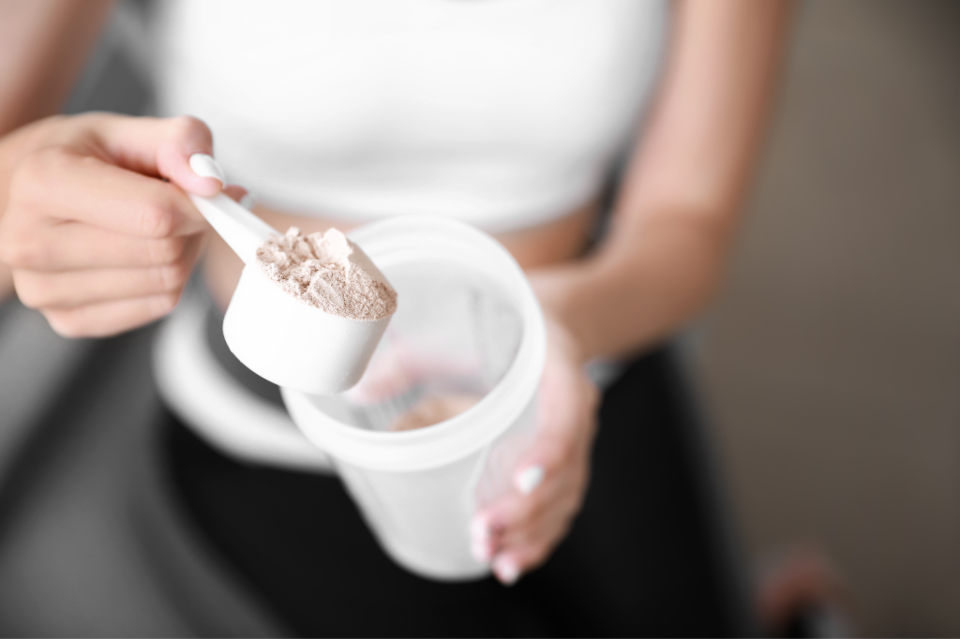As much as we'd like to fool ourselves into thinking it's still summer—with this extended summer weather in Ontario—our back-to-school schedules, the slight chill at night, and the arrival of fall decor and Halloween candy taking over the aisles of our go-to stores suggest otherwise.
With the back-to-school season comes a return to a more serious fitness training regime. Whether you're a group-class person or training for a fall event like a 5k, 10k, mud run, or fitness race, your training plan is only part of the equation.
Performance heavily relies on a sound nutrition regimen, whether levelling up in the gym, hitting a group fitness class, or racing in a competitive event.
Understanding Macronutrients
First things first—let's talk about the building blocks of our diet: macronutrients. Macronutrients include carbohydrates, proteins, and fats, each playing a crucial role in an athlete’s performance and recovery.
Carbohydrates: Carbs are your body’s primary energy source, especially during high-intensity workouts. As you ramp up your training, consider aiming for about 45 to 65% of your daily calories from carbs. Focus on whole grains, fruits, and vegetables, which provide energy and essential vitamins and minerals.
Proteins: Essential for muscle repair and recovery, protein should make up approximately 10 to 35% of your caloric intake. Athletes often need more protein than sedentary individuals, so include lean meats, dairy, beans, nuts, and seeds. A good rule of thumb is to aim for around 1.2 to 2.0 grams of protein per kilogram of body weight, depending on your activity level.
Fats: Healthy fats, comprising 20-35% of your daily calories, are vital for hormone production and overall health. Include sources like avocados, nuts, olive oil, and fatty fish, which can also provide omega-3 fatty acids for anti-inflammatory benefits.
By paying attention to the ratios of these macronutrients, you can ensure your body is well-fuelled to get stronger, faster, and recover effectively.
Food Choices for Optimal Performance
As an athlete, focusing on high-quality foods that nourish your body is essential. Prioritize whole, nutrient-dense foods that provide the energy you need, such as:
- Whole grains: Brown rice, quinoa, oats, and whole-grain pasta.
- Lean proteins: Chicken, fish, legumes, and tofu.
- Healthy fats: Nuts, seeds, and avocados.
- Fruits and Vegetables: A colourful array to maximize vitamins and minerals.
The Importance of Hydration
Hydration is a crucial yet often overlooked area of athletic performance. Proper fluid intake can significantly impact your energy levels, endurance, and recovery. Women should aim for about 2.7 litres of water per day, while men should shoot for 3.7 litres. You might need even more if you’re endurance training or doing particularly intense workouts.
It’s also important to note that as you sweat, you lose electrolytes—essential minerals such as sodium, potassium, and magnesium—necessary for a whole slew of bodily functions. To replenish electrolytes, try the following:
- Electrolyte powders: Many electrolyte powders are on the market, and they can be added to water before, during, or after workouts. Just be sure to scan ingredient labels and choose something clean.
- Coconut water: A natural source of electrolytes.
- Foods: Bananas, spinach, and nuts can help boost electrolyte levels.
- DIY solutions: Mix lemon juice and Himalayan salt in your water for a natural hydration strategy.
While sports drinks can be tempting, try to avoid sugary options that might do more harm than good.
Key Supplements for Training and Recovery
Always focus on a balanced diet as your primary source of nutrition, but consider adding some targeted supplements to supercharge your performance and recovery:
- Protein powder: A convenient way to ensure you meet your protein needs post-workout, supporting muscle repair.
- Creatine: This supplement may enhance muscle strength and power, making it popular among strength trainers.
- BCAA (Branched-Chain Amino Acids): These can help reduce muscle breakdown and fatigue, especially during intense training.
- Electrolytes: As mentioned above, they are crucial for hydration and preventing cramps.
- Magnesium: Taking magnesium before bed can aid muscle repair and relaxation and improve sleep quality— it’s a game-changer for recovery.
The Power of Rest
And don’t underestimate the importance of rest! Sleep and recovery days are just as crucial as your training sessions. Aim for 7 to 9 hours of sleep per night to allow your body to recover and adapt, leading to better performance in your next workout. As any well-seasoned athlete knows, a well-rounded approach to training and nutrition is key to achieving your athletic goals.
Happy training!
About the Author

Alicia is a journalist and editor in digital and print media specializing in health, nutrition, fitness, and wellness. She was previously the Editorial Director of Clean Eating and Vegetarian Times. Her work has also appeared in Hone Health The Edge, Yoga Journal, Women’s Running, and Oxygen, among others. In addition to being a content creator, she's an ISSA-certified nutritionist, certified personal trainer, and fitness studio owner in Toronto. Alicia loves spreading the word about helpful, science-backed health information, and she can be contacted via her website at aliciamtyler.com.








